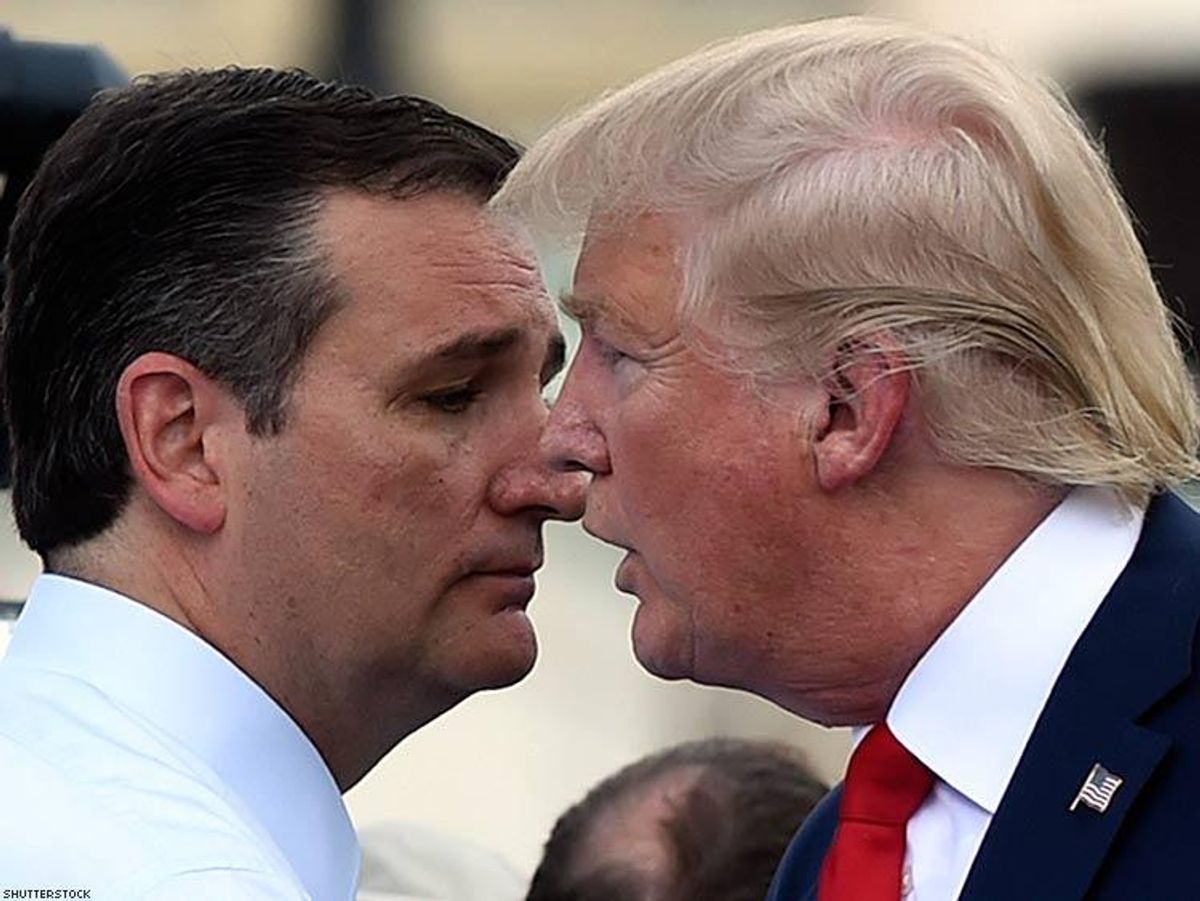In case you missed it, the presidential campaign is underway and we are just a few weeks away from the first votes being cast in the Iowa caucuses. The outcome of the Republican race there will be more consequential than any other time in recent history.
It used to be that the older, white, straight, evangelical Christian, culturally conservative voters, who make up over 60 percent of the Iowa GOP caucus voters, helped the most conservative candidates gain momentum and force more moderate candidates to the right. Then the more moderate "establishment" candidates moved to the middle to appeal to mainstream voters in other early states and the general election. Things are different than they used to be and there here's why.
First, the election is more of a national election than ever before. It used to start state by state, but now, national media attention and polling starts immediately. We saw the outcome of that dynamic in 2012 when cultural conservative Rick Santorum beat eventual nominee Mitt Romney in Iowa, then battled it out with Romney until the end, ending up the overall runner-up. Santorum got momentum off his win in Iowa and the national media attention helped to fuel his campaign to keep him alive in later states. Santorum was the chief competitor to Romney as a result of uber conservative Iowa, and Romney had to plant his campaign positions and rhetoric firmly on the cultural extreme throughout the primary and general campaigns.
This year will be even better for the conservative winner in Iowa because the new primary calendar favors them. The biggest change that will benefit the winner from Iowa is that Iowa is a month later this year, and there are a lot of primaries in socially conservative states that occur in the weeks immediately following.
We all know that Donald Trump is the national frontrunner. While he doesn't support civil marriage for gay couples (none of the GOP candidates do), you'd be hard pressed to define him as an antigay homophobe. He's anti-immigrant, anti-Muslim, but not antigay. Trump's lead nationally is strong enough that he will likely be one of the last candidates standing, but there's someone else who is leading the pack of candidates in Iowa and well positioned to go the distance nationally.
Antigay Texas Senator Ted Cruz is leading in the polls and believed to have the best organization in Iowa, and he's well organized in the following states, too. He has won the endorsements of the most notable anti-gay names in Iowa, including Congressman Steve King and Bob Vander Plaats, the head of the leading antigay organization there, The Family Leader. A Cruz win in Iowa will give him momentum heading into socially conservative South Carolina after the New Hampshire primary. Then, Cruz will be in a good position to capitalize on his momentum in the Southern Super Tuesday states on March 1.
While issues specifically affecting LGBT Americans have largely been in the background this election cycle, that won't last for long. State legislatures all over the country are convening this month and many of them will consider so called "religious liberty" legislation that could legalize discrimination against LGBT people. Those state-level issues will spill over into the presidential level, especially in those Super Tuesday Southern states, and as Jonathan Capehart wrote a few days ago, in Florida two weeks later.
At some point, the field of candidates will be reduced to the final two, and right now it's looking that it's likely to be Trump and Cruz. Cruz will highlight his cultural conservatism for those Southern voters, and will likely raise the "religious liberty" issue, like he did when he publicly embraced the county clerk in Kentucky, Kim Davis, last year. That could push Trump in that direction, too.
Sure, it's possible that another more "establishment" candidate will emerge to battle it out in the final two or three, but most of them aren't any better. Former Florida governor Jeb Bush was one of the first to rush to support Indiana governor Mike Pence last year in defense of that state's "religious liberty" law. Then there's Florida Senator Marco Rubio. Rubio, who, despite the recent revelation of his love of high-heels, built a decidedly antigay record during his service in the Florida legislature and U.S. Senate.
So, even if I'm wrong about a Trump-Cruz final showdown, and the "establishment" rallies and overcomes the Iowa winner, the outcome is bleak for those of us who care about how issues affect LGBT Americans. There will be no moderation on cultural issues this year, because cultural conservatives play a bigger role than ever in nominating the GOP standard bearer. That's something I never thought possible, but it is the reality.
 JIMMY LASALVIA is the author of No Hope: Why I Left the GOP (and You Should Too).
JIMMY LASALVIA is the author of No Hope: Why I Left the GOP (and You Should Too).
































 JIMMY LASALVIA is the author of No Hope: Why I Left the GOP (and You Should Too).
JIMMY LASALVIA is the author of No Hope: Why I Left the GOP (and You Should Too).

















































